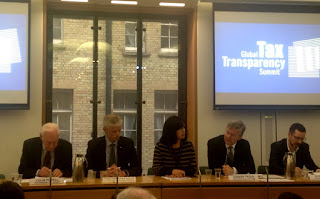Edward
Troup, Executive Chair of HMRC spoke this morning at the UK Public Accounts
Committee Global Tax Transparency Summit.
Much
of what Edward talked about was a tour through the recent activities of UK
government and/or HMRC to tackle tax evasion and avoidance. He also said that action on international avoidance and evasion
requires international cooperation. He then went on to talk about HMRC’s
thoughts on transparency and taxpayer confidentiality.
Edward made the case that sharing of information by businesses beyond tax authorities can drive change. The UK has embraced country-by-country reporting, and Finance Act 2016 introduced the requirement for large businesses to make public the principles behind their tax strategy.
Edward made the case that sharing of information by businesses beyond tax authorities can drive change. The UK has embraced country-by-country reporting, and Finance Act 2016 introduced the requirement for large businesses to make public the principles behind their tax strategy.
HMRC
sees this as key in driving business behaviour, and discussions around tax
strategy should be embedded in the corporate governance of large businesses.
However,
there is a crucial difference between HMRC disclosing information about tax
take and the tax gap, and disclosing information about particular individuals
or businesses, their tax affairs or disputes with HRMC.
HMRC
will continue to put more information in the public domain in an understandable
form. HMRC are looking to support more voluntary transparency by businesses,
and believe that businesses are best placed to publish meaningful information
about their tax affairs. This is for businesses to do, not HMRC who must
maintain taxpayer confidentiality.
So,
from Edward’s comments it appears that the onus will remain on businesses to
provide transparency, although HMRC will continue to promote new initiatives
and requirements for businesses to provide more information to stakeholders.

No comments:
Post a Comment